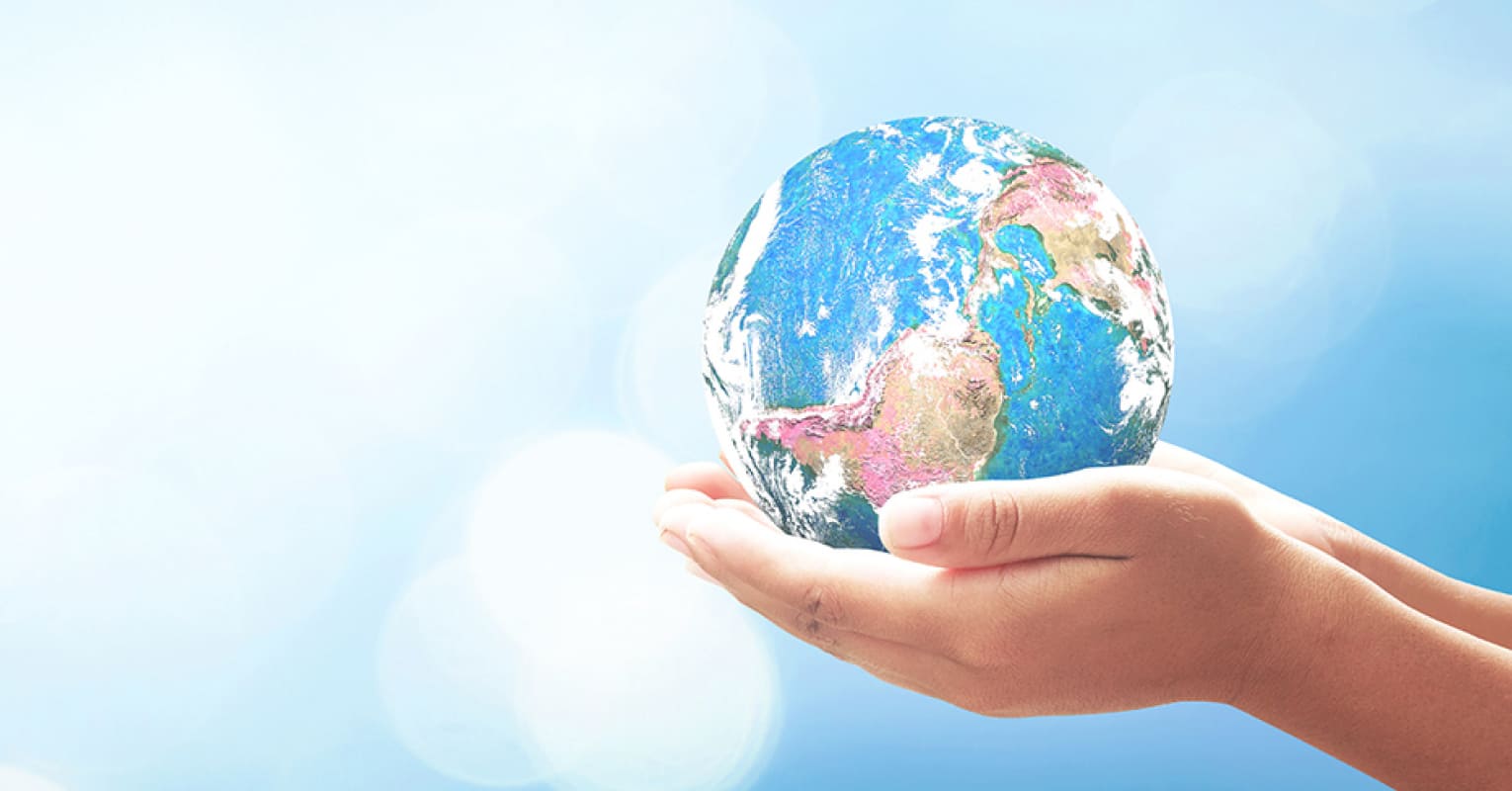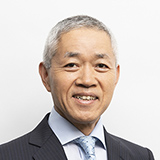Acting for Sustainability : A Legal Perspective
Feature #1: Thinking Through the SDGs, with Professor Kanie
(Interview with Norichika Kanie, Professor of Sustainability Sciences at Keio University(Shonan Fujisawa) conducted by Wataru Shimizu, Partner at AMT)

| Issue | Apr 12, 2022 |
|---|

Lately, global-level issues and the UN’s 17 Sustainable Development Goals (SDGs) that indicate the goals for solving these issues have been drawing more attention. At Anderson Mōri & Tomotsune, we as legal professionals continue to look for ways to contribute to achieving these SDGs. Our lawyers have developed a wealth of SDG-related expertise in their respective fields and have put these resources at the disposal of our clients, helping them find best practice-based solutions to the many legal issues that attach to sustainable development.
In this special feature, we introduce some of the activities that have allowed our lawyers not only to commit our Firm to the UN’s SDGs, but also to position our Firm as a leader in the field of sustainability law.
One such activity, presented below, features an interview with Norichika Kanie, professor at Keio University Graduate School of Media and Governance, a specialist in the areas of international relations and earth system governance and the representative member of the xSDG Laboratory. This Laboratory, in cooperation with Keio’s SFC Research Consortium, is a promoter of Keio University’s xSDG Research Consortium, whose efforts are now receiving the support of AMT.
*Date of the interview: January 6, 2022, conducted online.
Feature #1: Thinking Through the SDGs, with Professor Kanie
(Interview with Norichika Kanie, Professor of Sustainability Sciences at Keio University(Shonan Fujisawa) conducted by Wataru Shimizu, Partner at AMT)
Table of contents
Q1:What are the SDGs?
Shimizu (Interviewer)Thank you for accepting our interview. You have written in your book that the SDGs are “the framework of the world’s future.” Could you please again explain what the SDGs are?
Mr. KanieThe SDGs set out the tasks that we must accomplish in order for us to be able to continue living on Earth and to prosper without leaving anyone behind. The SDGs represent “the reimagined and reshaped future of the world” and are organized into 17 goals.
The main feature of the SDGs is that they are comprised of three dimensions, namely, environment, economy, and society, and that they address all three comprehensively. Prior to the SDGs, Japan addressed environmental issues as the unique primary global issue. However, the SDGs also cover economic issues such as poverty and social issues such as women’s empowerment. I have been conducting research on "sustainability" for over 20 years and I am very impressed that awareness of these issues has spread this far.
At the same time, we are also beginning to see a certain tension that results from taking an unbalanced approach to the SDGs. We have seen a number of cases, for example, where a given company might contribute through its activities to one of the goals of the SDGs, while at the same time, in doing so, unfortunately producing a great deal of waste that is damaging our environment. The companies in these cases are merely taking a very superficial approach to the SDGs and are missing the whole point.

Q2:Awareness of the SDGs in other countries
ShimizuJapan’s interest in the SDGs has surged prominently in the last one or two years, so much that NHK (Japan's public broadcaster) has featured the SDGs as a recurring topic of their broadcasts. Is there a similar trend in other countries?
Mr. KanieThe surge of Japan’s interest in the SDGs is extraordinary. I myself am supervising NHK’s SDGs programs, one of which includes “Tsubame” (a theme song for NHK’s series of SDG programs) performed by the popular duo YOASOBI. The reason why the SDGs are such a hot topic in Japan is because the SDGs are a UN initiative, an institution highly regarded by many in Japan.
In the U.S. where I currently reside for my research, the term “SDGs” enjoys very low visibility. There are also certain, let’s say, views that a certain group of Americans harbor towards the UN. But still, you do often hear the word “sustainability” in the U.S., so I think many Americans share goals that are compatible with the SDGs.
In Europe, on the other hand, already in the late 1990s, when I was studying abroad, one could often see people who brought their own reusable bags with them when shopping. Moreover, in Europe I learned to become aware of my use of potentially discriminatory language and actions, an important consideration when living in a part of the world with such a diverse population. So one can say that in Europe, where people are more conscious of human rights, diversity and environmental issues, the SDGs are not conceptually new to them.
Developing countries still require funds and support for development. They are placed in a difficult situation where the attempt to solve poverty entails environmental destruction. The situation is different in each country.
Either way, I think the SDGs have become a good opportunity for Japan to pivot from pursuing only economic rationality towards a way of thinking of how to achieve a sustainable society.
Q3:Latest international trends for the SDGs
ShimizuPerhaps the particular way that the SDGs frame their target issues suits the Japanese frame of mind. What are the latest international trends we can expect for the SDGs during the year 2022?
Mr. KanieI believe this year will become a very important year.
First of all, the “High-Level Political Forum” is held by the UN every year in July to review progress made on the SDGs, and the UN Secretary General will announce the UN's review of the SDGs at the global level. It is anticipated that this year’s forum will be held face-to-face for the first time since 2019.
In addition, this year marks the 50th anniversary of the “Declaration of the United Nations Conference on the Human Environment”, made in 1972 in Stockholm, Sweden. To commemorate this event, the “Stockholm+50” conference is scheduled to be held this June under the theme of achieving “A healthy planet for the prosperity of all.”
Furthermore, the UN General Assembly will be held in September of this year, which is a prelude to the UN’s “SDG Summit 2023.” The summit of 2023 is expected to be of great importance considering that the goals of SDGs are to be achieved by the year 2030.
A “Global Sustainable Development Proposal” is scheduled to be announced at the “SDG Summit 2023,” and 15 attendees at this Summit, including myself, are currently in the process of drafting this proposal. Through this proposal, we will ask the question, “How do we promote and achieve transformation across the world?”, and then propose the answer, "Why not [take these steps]?"
Q4:SDGs and Legislative Action
ShimizuMy understanding is that the SDGs are goals and not rules. What can we expect from legislative action in achieving the SDGs?
Mr. KanieThe good side of the SDGs is that each country has discretion to pursue these 17 goals in a way that suits its own reality on the ground, where some countries might choose to make the SDGs mandatory while others might not. The SDGs themselves are not drafted as mandatory, but I personally think that it’s acceptable to turn parts of the SDGs into mandatory rules if this is possible. For example, countries in Europe are establishing mandatory Human Rights Due Diligence rules, and some countries have also established mandatory rules for Renewable Energy.
I am hoping to promote the enactment of a fundamental law on sustainability in Japan. In the first place, the SDGs are a system of ethical standards, so such a fundamental law could serve as a general principle that would obligate the national government to act through cabinet-level discussions and that could even impact local governments.
The government’s SDGs Promotion Headquarters, the round-table meetings of which I am a member attendee, sets as one of its present goals the revision of the “SDGs Implementation Guiding Principles” in time for the 2023 UN General Assembly. I think establishing a fundamental law would be crucial in speeding up Japan’s activities in fulfilment of the SDGs. The potential benefits of such a law can be seen when observing how the establishment of a fundamental law for the internet (namely, the Basic Act on the Formation of an Advanced Information and Telecommunications Network Society) led to the launch of the Digital Agency a couple of years later.
We absolutely look forward to receiving the support of lawyers who will be able to contribute their knowledge to these projects, such as through the discussions held by way of the xSDG Laboratoy consortiums.

Q5:Going forward
ShimizuThank you. AMT also looks forward to joining these discussions. This interview has been very informative of your ambition to realize sustainability. Could you tell us about your personal goals?
Mr. KanieI used to do research on environmental problems, and even back then, it was clear from all sorts of data that the environment would not last and the earth would not last if the present state of affairs were to continue. At the same time, I also understood the disappointing reality that solving poverty under the current social system would only contribute to the deterioration of the earth's environment.
It was then when I realized there was a need to substantially change the system itself. There are arguments that capitalism has reached its limits, but I personally think that capitalism will inevitably continue, albeit by going through modifications. If this is the case, we need to change our mindsets and out standards.
The SDGs are the first comprehensive standards made by the UN that are not mandatory rules. My goal is to do what I can to achieve “the reimagined and reshaped future of the world” indicated by the SDGs. I am optimistic that Japan will achieve a sustainable society and become a leading country in the movement to realize the SDGs.
ShimizuWe also wish to think what we at AMT can contribute to achieving the SDGs. Thank you very much for your time for this interview today.

Professor at Keio Univeristy Graduate School of Media and Governance
Representative member of the xSDG Laboratory. Researcher information – Norichika Kanie (keio.ac.jp)

